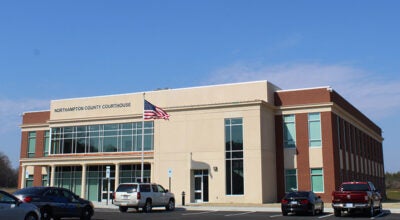Transportation bill aids US 17
Published 8:55 am Tuesday, December 22, 2015
WASHINGTON, DC – President Barack Obama recently signed into law two bills authored by NC First District Congressman G. K. Butterfield that designate several highways in eastern North Carolina as “future interstates.”
The Route to Opportunity and Development (ROAD) Act (H.R. 2211) and Military Corridor Transportation Improvement Act (H.R. 1844) were passed by the House of Representatives earlier this month by a vote of 359 – 65. Passage of the legislation to designate the highways as a future interstate is expected to lead to modernization and investment in the region’s highway infrastructure.
The bills were part of the annual Surface Transportation Reauthorization Bill, a five-year surface transportation bill. When it was first introduced in July 2014 state officials pushed for bipartisan cooperation in getting it passed.
“Not only is this designation part of our future vision for transportation in our state, it is also key to attracting companies to North Carolina and expanding those that are already here,” said Gov. Pat McCrory at the time.
“Creating jobs and boosting the economy of eastern North Carolina has been one of my top priorities since coming to Congress,” said Butterfield. “The passage of the ROAD Act and the Military Corridor Transportation Improvement Act marks the most significant step forward for transportation and infrastructure improvements in eastern North Carolina in a decade. These new laws are key elements of my vision to support the future of transportation in our region. The implementation of these laws will pave the way for job creation, further economic development, reduce traffic congestion, and improve access to eastern North Carolina and Virginia.”
The ROAD Act designates portions of U.S. Highways 17 and 64 through Rocky Mount, Williamston, Windsor, and Elizabeth City as a “future interstate.” Specifically, H.R. 2211 guarantees that the corridor connecting Raleigh and Norfolk be built to interstate standards, that the route travels through eastern North Carolina, and that US Highways 17 and 64 are prioritized when allocating funding for federal highways.
The Military Corridor Transportation Improvement Act (MCTI) designates portions of US Highways 70 and 117 as high priority corridors and as “future interstates” to better connect Seymour Johnson Air Force Base, the North Carolina Global TransPark, Marine Corps Air Station Cherry Point, and the Port of Morehead City with the rest of North Carolina and the eastern seaboard.
“The ROAD Act and the Military Corridor Transportation Improvement Act are vital to eastern North Carolina’s long-term growth and will strengthen our region’s transportation infrastructure, spur economic development, and improve travel for eastern North Carolinians,” added Butterfield. “I thank President Obama and my colleagues for passing these important laws which will benefit my constituents and the millions of individuals who travel in our state each year.”
The five-year surface transportation bill provides $305 billion in federal funding for transportation. The Federal Highway Administration estimates that an investment of just $1 billion in transportation funding could support 30,000 jobs. These important highway upgrades will increase transportation investment and stimulate job growth in eastern North Carolina.
The area’s two representatives in the North Carolina General Assembly, 5th District Rep. Howard Hunter III and 3rd District State Senator Erica Smith-Ingram, lauded the bills’ passage and the benefits it will bring to North Carolina highways.
“Better infrastructure will always help our district,” said Hunter in a statement. “This is what will help bring jobs to our district. I appreciate all the hard work that Congressman Butterfield is doing for northeastern North Carolina.”
Smith-Ingram, who was recently appointed to the Joint Legislative Transportation Oversight Committee, was particularly excited since US 64 and US 17 bisect, or cross, within the boundaries of the 3rd District. She also mentioned other roadway improvements that are needed.
“The enactment of the ROAD and MCTI Acts are definitely economic development game changers for eastern North Carolina,” Smith-Ingram said. “I applaud Congressman Butterfield for working diligently to see this through, having introduced the legislation in previous sessions. Now that our Congressional leadership has done their part to promote economic development across needed areas of the country, I urge my state colleagues to join this impactful re-engineering design by prioritizing the US Hwy 158 4-lane expansion plan to fully connect the region.
“With this superhighway connection we will be able to provide tremendous opportunities for growth in travel and tourism, attract major businesses and create tens of thousands of jobs in our state. More specifically, those jobs and opportunities will target the most economically distressed areas of the state. I am hopeful that we will have an opportunity to analyze our infrastructure strategic planning as it aligns with this approximately $1 billion federal investment projection,” the Senator stated.



